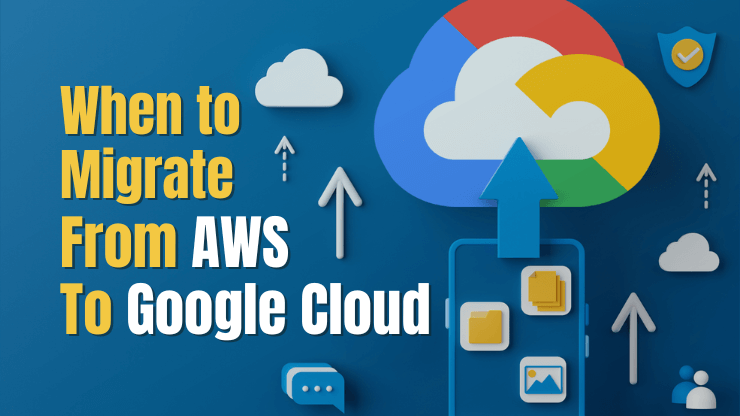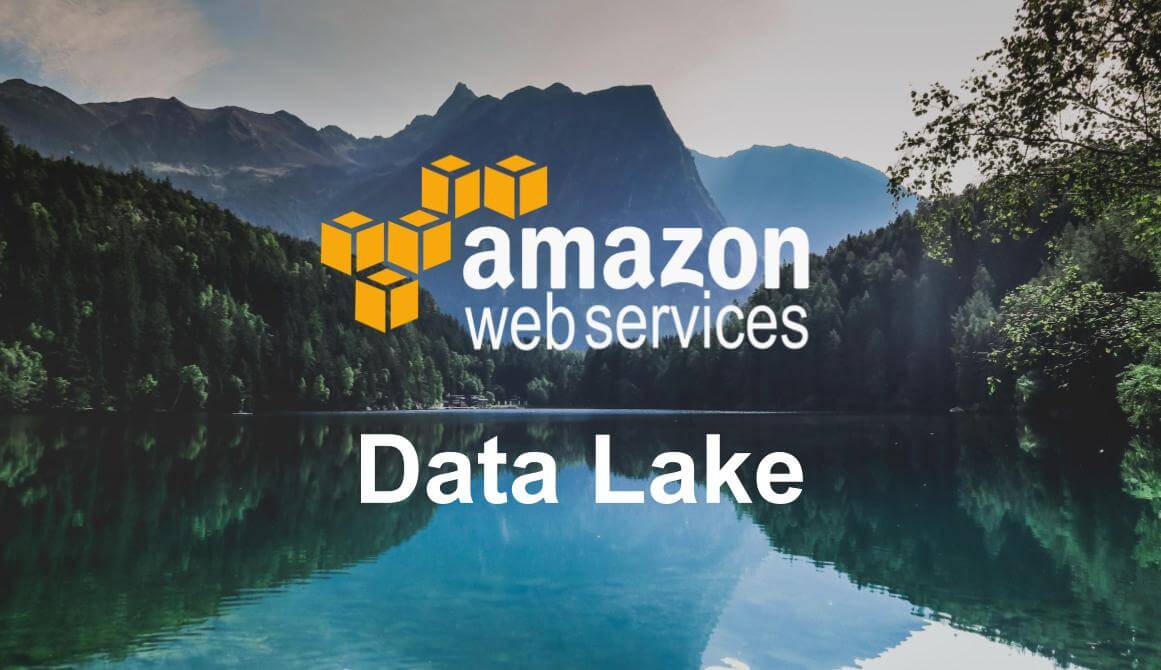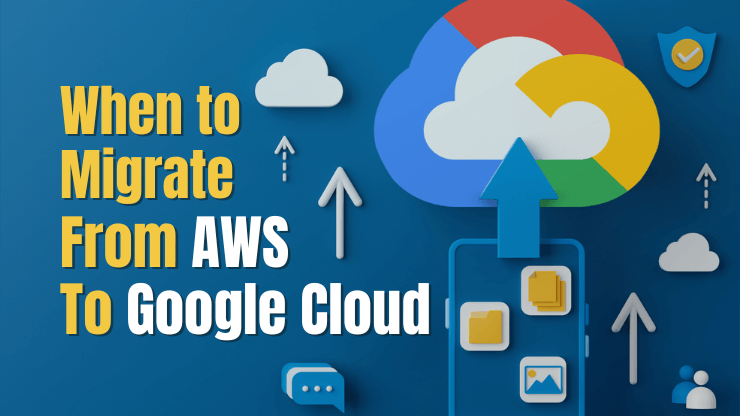You could have read why you should migrate to Google Cloud Platform from Amazon Web Services. I want to show you the other side of this argument - my goal is to present an objective and fact-based guideline which vendor you should choose.
The most challenging part is to make such a guideline actionable and the least opinionated as you can. My goal is to present and identify critical factors which should restrain you from migrating off AWS just because of the newer, shinier option. However, before we present the guides, I would like to start with the rectification.
Let’s do the fact-checking!
I would not be myself if I missed the opportunity to point out that the examples of great companies cited in the referenced article that are using GCP are fragile, to put it mildly - outside of Spotify, who is an excellent example of the success on top of the vendor mentioned above rest is pretty vague.
Yik Yak is not the best company to discuss, as they are downsizing their business and Jodel beats them on the European market. Netflix is also an invalid example as they are using other clouds since the beginning as a part of their disaster recovery plan (you can read about that in the IPO).
I am not surprised that my colleague mentioned Snapchat on the second place. Probably because that is an example of another business that is shrinking, instead of growing and they are known for their enormous investment into GCP. I am not surprised that my colleague mentioned Snapchat on the second place. Probably because that is an example of another business that is shrinking, instead of growing and they are known for their enormous investment into GCP.
However, the element mentioned above is not the biggest problem that I have with the article. I think the biggest misinterpretation is treating Amazon as less secure and less ambitious than Google. Speaking about privacy, nobody on the market has so many scars and shadows as Google.
It is a perfectly valid point that choosing a vendor is a matter of the risk analysis your company should do. If you are an eCommerce platform, you will not want to use the cloud of your biggest competitor - and that is a known fact that US eCommerce giants like Walmart or Target are explicitly cooperating with Microsoft and Google because of that.
With Google Cloud Platform the situation is no different - ask and look at how many Ad Tech companies are afraid to use that vendor. Also, such claim that AWS does not care about security is an oversimplification, especially if you will look at how much security services they have introduced over the last 2 years. However, I will address that in more detail in the next paragraph.
Summing up - the author colored the article a little bit, to catch your attention and gain trust. I am choosing a different strategy here: I am brutally honest with you and I start immediately with the next point.
Market Leader
If you think that I jump out with a Gartner quadrant here, you are wrong. Those quadrants are helpful only if you do not know anything about the market. However, I am sure that you have done your homework, and you still do not know what to do.
Let’s talk about facts instead - Amazon Web Services is the leader when it comes to the cloud computing market. It is the oldest and most mature platform. I leave innovation aside, as it cannot be measured objectively, but I end digression here, and return to it in the next paragraph.
Outside of bragging, it means a couple of additional things. If you are familiar with the book The 22 Immutable Laws of Marketing (which I strongly recommend), you for sure remember The Law of Leadership which refers to the first position of your market. People do not remember the 2nd person that flew over the Atlantic Ocean. Even nowadays, people are using names from AWS (e.g. AWS EC2 or AWS S3) versus service category description, irrespective of the cloud service vendors.
What I am trying to say here is that status is the biggest draw for Google Cloud Platform, as they are heavily investing in being the number one and AWS is not giving that position for free, they may become less interested in occupying the 2nd/3rd market position. So everyone must admit that they are known for abandoning products - to mention some such examples as AppEngine, GWT or Google Reader. Let’s be fair and honest - if we are saying that Amazon has divided focus and do not focus on important points related to the growth and direction of AWS, you have to say the same thing about Google and GCP.
Speaking about that - as AWS is the most mature cloud vendor on the market, they have the biggest responsibility to take care of onboarding clients and existing workloads, and yet they are moving forward very rapidly. The pace and growth are impressive, taking into account that they are providing backward compatibility and support for the used features.
Moreover, they listen to their customers, and the most recent example can be provided with the deprecation of S3 path-style naming where they announced their plans, and after receiving feedback from the community, they rethought everything and prepared an alternative solution.
As a leader, which is still snowballing, adding new regions, new availability zones and new services, they are winning in all comparisons to the other cloud vendors. Adding to that GovCloud, extensive compliance and certifications (e.g. HIPAA, PCI DSS compliance, ISO), robust partner programs (APN) and valuable expert certifications you are offered a vibrant ecosystem which is thriving.
I must agree though, that arguments about complexity and more significant effort related to understanding the cost-efficiency are valid. However, those pain points are entirely related to the 10+ years of legacy and presence on the market. As I stated above, a thing worth noting here is that AWS supports many mechanisms providing backward compatibility. I would love to see the same maturity and engagement in the pretty new and immature GCP. So once again, I would not be myself I could not snark here and remind you what policies Google has regarding the support of older services and backward compatibility.
Pragmatism and Efficiency
Another fact that I would like to present is the consistent vision that AWS has maintained for many years now: Amazon Web Services is a platform for builders.
The company provides a broader and more diversified set of services that allows you to focus on building your digital products. It is also better suited for hybrid workloads due to a more mature and more diversified service line. In such environments, services like AWS Database Migration Service, AWS Storage Gateway or AWS Snowball are sometimes the only way to transition that business towards cloud computing.
I want to emphasize how well they know and understand their customers by citing the following example. Many people wondered why AWS entered the blockchain arms race of cloud vendors so late in the process. Many stated that the company lost because of that. They were wrong. In November 2018 during re:Invent AWS explained why they had introduced not one but two blockchain-related services.
They did not go with the hype, but the AWS architects team cooperated for more than a year with their customers and carefully evaluated examples and case studies. As a result they have introduced two totally different, yet still tailored and well-suited services in that space. One provides a ledger functionality that will survive quantum computing revolution and the other is a managed blockchain service on top of Ethereum and Hyperledger.
On the other hand, I fully agree that both Google and Microsoft are currently a cheaper service. However, it so happens because they are throwing tremendous loads of money into building a customer base. The problem is that it is a short-term, growth-oriented move, and I would argue that such a strategy is done with customer interest in mind.
AWS has a different strategy - they are consistently - year in, year out - lowering their prices and providing new services that make it possible to tackle specific problems in a more cost-efficient way than older solutions; to name a few examples from recent years - Amazon Aurora, AWS Glue, Amazon DynamoDB or Amazon Kinesis).
The competitors have adopted a different strategy which is focused on attracting customers with lower prices, but ultimately, they are companies focused on profit X. You can compare such strategy to the drug dealers’s tactics: the first one is for free. I would also like to address a FUD from the referenced article. It is simply not true that AWS does not provide discounts or do not invest in companies that are coming to the cloud as a verified APN partner can confirm that we were able to negotiate prices and discounts for PoCs and new workloads for our customers.
Portfolio
I have already mentioned the fact that AWS has the biggest portfolio of services available. However, there are some specific examples which confirm their domination in certain categories.
Broader and more diversified serverless ecosystem is a game-changer for builders. If you want to be smart and avoid building everything on your own, but rather validate your business idea first, and only later build and sustain your digital product in a serverless manner, Amazon Web Services should be an obvious choice for you. Serverless is not only about FaaS (compute services), but it is all about supporting services and easy integration - and this platform has just more and better options available. Using those services gives you a direct competitive advantage over your competitors who choose GCP or other vendors.
Additionally, there are some specialized services which are not available anywhere else and which thus provide you with a significant, competitive advantage if your business needs them. To name just a few examples: Amazon Sumerian (AR/VR), Amazon Lex (Voice UI and Conversational Interfaces), Amazon Personalize (eCommerce, Machine Learning), Amazon Forecast (eCommerce, Machine Learning) or holistic and a complex service set named AWS IoT.
I must agree that AI and ML services on the AWS side are catching up with those of their competitors. It was visible especially after the last re:Invent when they have announced several of those. However, claiming that Amazon knows less about AI and ML is a simplification and skimming over the truth. If you honestly look into services like Amazon Personalize, Amazon Textract, Amazon Polly or Amazon Forecast, you can clearly see a great potential and innovation present in them.
The Guideline
Okay, enough bashing and verbal fencing. I would like to present an objective and actionable guide on how to choose between those two cloud providers:
- If you are an established company with owned servers or on-premise workloads:
- Please consider AWS, as it is a much friendlier environment for your context, which comes with more robust solutions that work very well in a hybrid cloud environment.
- If you are a fresh or new company that does not need a hybrid cloud:
- Please consider the following: carefully evaluate your strengths and business models. Have a look at your use cases - then either evaluate on you own or with a trusted partner the relevant specialized service offerings:
- Choose AWS, if you can leverage a service which will provide you with a competitive advantage which will be your competitive advantage. That will allow you to reduce time to market, optimize cost-efficiency, and/or reduce development costs. Examples: Serverless ecosystem, Amazon Sumerian, Amazon Quantuum Ledger Database or AWS Ground Station.
- Otherwise, feel free to choose the provider you would prefer.
- Please consider the following: carefully evaluate your strengths and business models. Have a look at your use cases - then either evaluate on you own or with a trusted partner the relevant specialized service offerings:
- Choose AWS if you invest in a diversified managed NoSQL databases landscape, e.g., graph (Amazon Neptune) or time-series databases (Amazon Timestream).
- If you are considering ML or AI services, carefully consider the specific offerings of both providers and choose the best-fitting one.
- If you are considering a managed Kubernetes service, GCP may / do currently have the best solution on the market.
- If you rely on international certification or compliance, you may be better off if you consider AWS as your provider of choice.
Summary
The guideline stated above cannot be an exhaustive list of how to tackle a cloud vendor choice. In any case you should consider consulting with a trusted partner that will help you with the evaluation.
Such a choice can be very time-consuming, complicated, and crucial for the future of your digital product or business. It is not a choice you should make after meeting a consultant from a single vendor right after he mentioned that you would get discounts for the first year after signing the deal. We sometimes tend to spend weeks on choices like frameworks, and I cannot imagine that we could skim over the cloud computing provider. We should base our decisions on diligent analysis of current offerings and our past experiences. That choice should ideally provide you with a competitive advantage and be a smart move to outpace your competitors.
If you still have doubts which vendor to choose and what should be your next, smart move, feel free to contact me here, I would always be happy to help in interesting cases.




